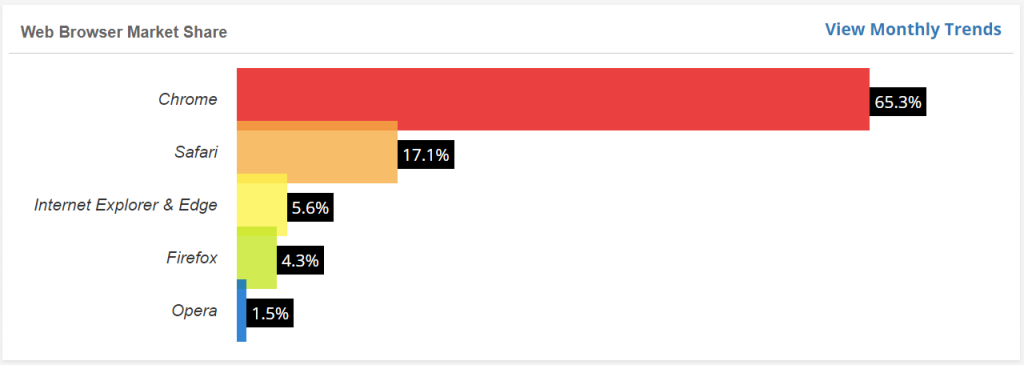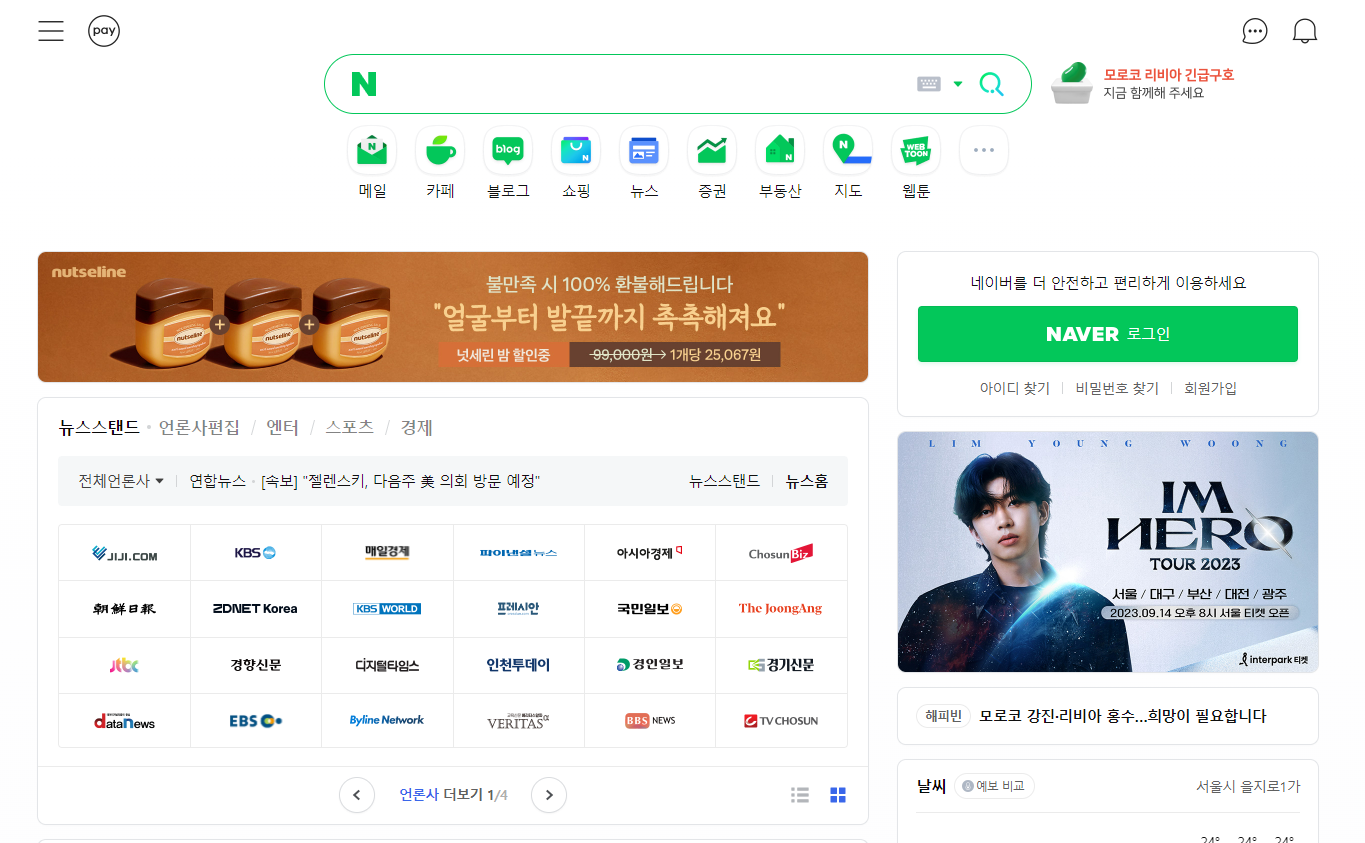Snapps courses are now available
Ever heard of
Bing,
Yahoo,
Yandex,
Baidu
etc. These are some of the lesser known browsers and competitors to Google. Although
Google
has the highest search volumes among all search engines, that does not mean that these other browsers don’t have any traffic. Everyday, billions of searches take place on Bing, Yahoo, Yandex and other search engines. As a marketer it is important to have a presence where there is an audience which means knowing what those other engines are, and maintaining a strong presence for more sales.
What Do We Mean by an
Alternative Search Engine?
Fun fact:
Do you know there are 160 search engines? How many do you know?

Google isn’t the only search engine and there are plenty more lesser-known search engines with billions of searches each day. Most local marketers are sharply focused on well-known browsers like Google, Safari and Bing. In 9 out of 10 cases, local marketers don’t give any importance to alternative search engines such as Yandex.
<quoted text> Do you know that Yandex has 63.9 million visitors daily? Bing has 100 million daily visitors.
Google has one of the highest search volumes but after the launch of
ChatGPT, Bing search volumes have grown to 100 million daily active users. This ain’t much compared to Google’s search volume however it is still significant for a local marketer. Additionally, different search engines are popular in different regions. Before designing a targeted ad campaign, usage statistics of various search engines can be studied by area. For instance, if Bing is popular in Texas, local marketers should focus on establishing the brand’s identity on Bing.
Why Do These
Google Alternatives Matter?
Different Search Engines - Different Audiences

Understanding the different types of users that use different search engines is important for local SEO. By aligning one's SEO efforts to meet the needs of these users, you can increase your presence in the right places. For example, a business targeting tech-led products/services should focus more on Bing which has a young audience interested in tech-trends. A family-friendly business or service will be better off on
SwissCows which is a safe search engine that automatically filters out offensive content. Search engines release user preference and demographic data on a regular basis which can be of great help to the marketers.
Trust and
Privacy Concerns
Modern internet users are more conscious about their online safety and security. A large percentage of people do not like to be tracked or want their data to be stored online. For users who are concerned with their privacy, search engines like Swisscows are a more appealing option compared to Google.
Geographical and
Demographic Preferences
It may come as a surprise that Google is not the most used browser in all countries. As an example, Baidu is more popular compared to Google. For a local marketer aiming to grow a product or service in China, Google will not be the best engine. Similarly, Yandex is the most popular option in Russia followed by Google and Ya.Ru in third position. A Russian local marketer should be more focused on Yandex and Google both to cater to the majority of the population.
Element of
Variability
Search engines are based on certain rules called algorithms. It is a common practice for Google and other companies to make changes to the algorithm which can impact the organic visibility on Google. If there is a back plan in the form of visibility of another alternate search engine such as Bing, losses can be avoided or altogether eliminated. Over-reliance on any one is not a good SEO practice.
Do I Need to Invest Lots of Time in These
Search Engines?
If you are a local marketer looking to create an online presence across various search engines and are worried that it will waste too much time, there is no need to worry. To create a strong presence on various search engines, it does not require much time as much of the tactics overlap. Bing, Yahoo and other notable search users make use of similar algorithms.
Another thing to be mindful of is that different search engines have different quirky features. Even if you have a properly maintained Google Business Profile, you would still need to claim your Bing Places listing. Similarly, for Safari users, the Apple Map listing needs to be claimed for a business to be visible for Apple Search traffic.
One good thing is that the best practices used for ranking on Google can help aid ranking on other platforms such as Bing and Safari. Certain elements such as good quality content, unique page titles etc. help you rank faster, regardless of the alternative search engine you are focusing on.
Alternative
Search Engines to Google You Should Consider
When considering alternative search engines for your business, it's crucial to understand their local search optimization strategies. While Google is a dominant player, other search engines like Bing, Yahoo, Yandex, and Baidu have their own unique approaches to local search. Here's a comprehensive breakdown of local search tips for these alternative search engines:
Bing - Your Google
Alternative
Bing offers a robust local search experience similar to Google's local pack. Key differences lie in its ranking factors and optimization strategies:
- Claim Your Bing Places Listing: Start by claiming your Bing Places listing. Accurate business information is essential. Choose the most relevant category and add comprehensive details, including multiple images.
- Reviews Matter: Just like Google, reviews are vital for local visibility on Bing. TripAdvisor and Yelp reviews have a significant impact on search results. Manage and respond to reviews promptly through your Bing Places listing.
- Local Backlinks: Strengthen your local presence with backlinks from other local websites, particularly those in your immediate area.
- Bing Webmaster Tools: Regularly monitor your site's performance using Bing Webmaster Tools. It helps identify accessibility issues, provides valuable keyword data, and suggests relevant keywords.
- Create Localized Content: Develop content tailored to local keywords based on thorough research. This will help Bing users find the information they're looking for.
- AI-Powered Search: Bing is moving towards AI-powered search. Currently, access to these features may require the use of
Microsoft Edge.
Yandex - Russia's
Leading Search Engine
Yandex, Russia's prominent search engine, has a unique approach to local search optimization:
- Geotargeting Emphasis: Yandex strongly emphasizes geotargeting. Specify your target geographic region through the Yandex Webmaster Tools interface.
- Submit to Yandex Business Directory: Submit your business information to the Yandex Business Directory, allowing you to specify up to seven regions.
- Complete Address and Contact Info: If your business operates in Russia, include complete address details and a telephone number.
- Manual Sitemap Submission: Yandex indexing is slower than Google's. Manually submit your local business website's sitemap through Yandex.Webmaster.
- Meta Tags: Yandex algorithms consider meta tags. Ensure your site has unique and descriptive meta tags for each page.
- Yandex Metrica: Focus on user behavior metrics to prove your site's usefulness. Provide relevant, high-quality content and work on improving navigation and page speed. Also make use of
Yandex Metrica, the equivalent of
Google Analytics, to analyze user behavior and refine your site accordingly.
Yandex
has additional requirements for commercial websites, emphasizing credibility, interface, product range, pricing, payment methods, and delivery. Ensure clear contact information and a strong social media presence.
Baidu - China's Dominant Search Engine

Baidu is China's top search engine which has its own local ranking factors and content guidelines. The optimization of Baidu is a bit trickier compared to other search engines, procedure as follows:
- Verification is Key: To unlock higher rankings, verify your site through Baidu's process (V1, V2, or V3). This involves a fee and providing business information.
- Content Caution: Baidu censors search results, so be extremely mindful of your content. Avoid anti-government sentiments, adult content, or gambling-related information.
- Language Matters: Certain words can trigger blocklisting due to political connotations. Ensure all content is created or reviewed by native speakers.
- Content Localization: Rather than mere translation, localize your content for authenticity. This can reduce bounce rates and improve trustworthiness.
- Keyword Placement: Place essential local keywords at the beginning of your content. Baidu may only index the first 100KB.
- Mobile Optimization: Chinese users favor mobile search, so ensure your site is mobile-friendly. This not only enhances rankings but also improves user conversion.
Other
Search Engines to Consider
In today's digital landscape, many users are seeking privacy and unique search experiences, leading them to consider alternative search engines. Some cool and lesser known search engines with powerful privacy features are as follows:
DuckDuckGo - The Privacy-First Search Engine

DuckDuckGo, a pioneer in private search, promises no tracking and attracts tech-savvy users. It aggregates results from over 500 sources, making standard optimization principles crucial. To stand out on DuckDuckGo, include clear location markers on your website, encompassing full business addresses, contact information, and locally relevant keywords in titles, meta descriptions, and content.
Startpage - Privacy with Location Specification

Startpage, another privacy-focused search engine, requires users to specify locations in their searches. For local businesses, standard local SEO strategies designed for Google can be adapted to optimize for Startpage.
Naver -
South Korea's
Top Choice

If South Korea is a target market,
Naver's
localized approach demands unique content in Korean, mobile-friendliness, easy navigation, and fast loading times to establish a robust local presence.
Exploring the
Opportunities
Exploring alternative search engines broadens your business's reach. While each platform may have its unique features, adapting your strategies to these engines for "alternative search engine" optimization can help you tap into previously untapped customer bases. By understanding the subtle differences between each alternative search engine and tailoring your optimization strategies accordingly, you can maximize your online visibility.
Related: Ready, Set, Launch: Creating Your First Small Business Website
Recent Articles



Ready? Try it for Free
Sign up now and build your pages the way you envisioned. No credit cards required.
Our Support Heroes Are Here For You
Don’t waste time on tedious manual tasks. Let Automation do it for you. Simplify workflows, reduce errors, and save time for solving more important problems.
